

Around the globe, LexisNexis employees are connected by the desire to shape a more just world where the rule of law increases peace, prosperity, and justice. Everything that we do as a commercial business advances the rule of law. Publishing laws and enabling access to justice is at our core. Every time we expand our work into a new country, introduce a tool or roll out new analytics, we’re extending the umbrella protection of the rule of law.
At LexisNexis, we are deeply dedicated to ensuring that our business is reflective of the diverse communities we serve across the globe and that we foster a culture where differences are celebrated. We are proud to have received a perfect score of 100% on the Human Rights Campaign Foundation’s 2022 Corporate Equality Index (CEI), a leading benchmarking survey and report measuring corporate policies and practices related to LGBTQIA+ workplace equality.
We continuously support the LGBTQ+ community by uplifting queer voices through our Pride shorthand stories, supporting our PRIDE employee resource groups, partnering with the National LGBTQ+ Bar Association, and annually sponsoring the Lavender Law Conference & Career Fair.
We relentlessly seek opportunities to be better at creating an organization that is a great place to work, where our employees feel valued, have equal opportunities, and benefit from pay equity regardless of their gender, gender identity, national origin, race, ethnicity, religion, sexual orientation, age or disability status. Inclusion & diversity are important to our future. We need the engagement of people from a wide array of backgrounds, and experiences to achieve real innovation to shape a more just world, FOR EVERYONE.
Celebrating #PRIDE across RELX at the 2022 UK Pride Parade.

The LGBTQ+ Bar
The LGBTQ+ Bar was founded over thirty years ago by a small group of family law practitioners at the height of the HIV/AIDS crisis. In 1987, the idea of creating a gay and lesbian bar association was formally introduced at the Lesbian & Gay March on Washington. The first Lavender Law® Conference took place the following year at the Golden Gate University in San Francisco. In 1989, at the American Bar Association’s Mid-Year meeting, bylaws were presented, and a nonprofit board of directors was formalized.
At the second board meeting in 1989 in Boston, the LGBTQ+ Bar, then known as the National Lesbian and Gay Law Association (NLGLA), had 293 paid members and initiated a campaign to ask the ABA to include protection based on sexual orientation in its revision of the Model Code of Judicial Conduct for Judges. In 1992, the LGBTQ+ Bar became an official affiliate of the American Bar Association and it now works closely with the ABA’s Section on Individual Rights and Responsibilities and its Committee on Sexual Orientation and Gender Identity.
2023 Lavender Law Conference & Career Fair
Since its inception in 1988, Lavender Law® has served as a ‘family reunion’ for LGBTQ+ and ally legal professionals to both look back at our shared history and look forward to the future of the legal profession. The Lavender Law® Conference & Career Fair is the largest LGBTQ+ legal conference in the country with approximately 1700 attendees attending annually.
The National LGBTQ+ Bar Association’s annual Lavender Law® Career Fair is designed to achieve a sense of community and inclusion for LGBTQ+ candidates within the legal profession’s recruiting efforts.
LexisNexis is proud to be a sponsor again this year at the 2023 Lavender Law Conference & Career Fair. Join us July 24-26th in Los Angeles as we continue to shape a more just world for everyone.



The Importance of Our Partnership
Our partnership with the National LGBTQ+ Bar Association is imperative to our company values; we believe in advancing the rule of law and using our resources to better the community we all individually work within and at large. Partnering with the LGBTQ+ Bar means we can put our “money where our mouth” is and support the betterment of the LGBTQ+ community by assisting with researching, litigating, and legislating issues like the Panic Defense and workplace inequities that constantly haunt the LGBTQ+ community.
Personally, I have been leading the effort to make LexisNexis highly involved the past couple of years. Our first time at the conference was last year and because the world is asking companies to do more than just throw money at events and wear rainbow for a month, I wanted to lead LexisNexis to become a Leader in answering that request. We are here to educate, support, and be a guiding post example for other companies on what allyship looks like: Action. We are using our resources to help work towards pushing forward a ban on the Panic Defense, educate practitioners and students on resources and provide practical resources to support those who are on the front lines of these heavy issues.
It is a breath of fresh air to know your company is supporting LGBTQ+ issues. Many companies have pride month pins, logos, and newsletters that go out in June, and that is it. We at LexisNexis are answering the call to not just be visually supportive, but to provide our resources to help those who are fighting for impacting systemic change. I’m proud to say that LexisNexis is working to grow their understanding of what it means to be an ally for the LGBTQ+ community and not just learning, but taking that knowledge and putting it into action.
Jack Steeh, J.D. (He/Him), Research Consultant

Panic Defense Bill
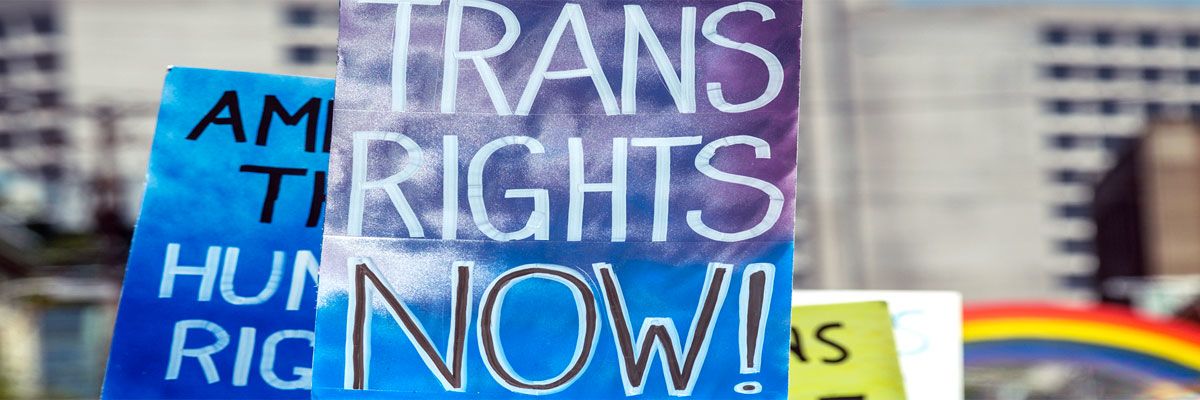
The LGBTQ+ “panic” defense strategy is a legal strategy that asks a jury to find that a victim’s sexual orientation or gender identity/expression is to blame for a defendant’s violent reaction, including murder. It is not a free-standing defense to criminal liability, but rather a legal tactic used to bolster other defenses. When a perpetrator uses an LGBTQ+ “panic” defense, they are claiming that a victim’s sexual orientation or gender identity not only explains—but excuses—a loss of self-control and the subsequent assault. By fully or partially acquitting the perpetrators of crimes against LGBTQ+ victims, this defense implies that LGBTQ+ lives are worth less than others. One of the most recognized cases that employed the LGBTQ+ “panic” defense was that of Matthew Shepard. In 1998, Matthew Shepard, a 21-year-old college student, was beaten to death by two men. The men attempted to use the LGBTQ+ “panic” defense to excuse their actions. Despite widespread public protest, the defense is still being used today.
The LGBTQ+ Bar is proud to be leading the effort to ban the LGBTQ+ “panic” defense across the country. In 2013, The American Bar Association (ABA) unanimously approved a resolution—introduced by the LGBTQ+ Bar—calling for an end to this heinous defense strategy. Since then, the District of Columbia and the states of California, Illinois, Rhode Island, Nevada, Connecticut, Maine, Hawaii, New York, New Jersey, Washington, Colorado, Virginia, Vermont, Oregon, and Maryland have banned such defenses. Legislation is pending federally as well as in multiple states.
LexisNexis is working with the LGBTQ+ Bar to ban this “defense”. We are working alongside their team to ensure they have the best legal resources to guarantee that the work they are doing does not come short. This is imperative work for the LGBTQ+ community and we want to do what we can to help.
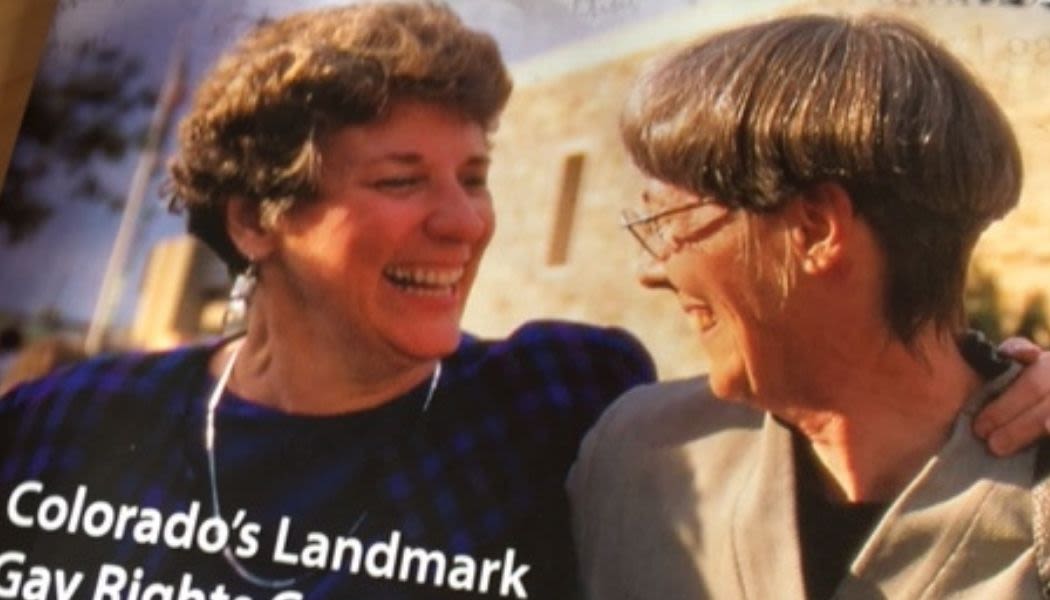
Romer v. Evans,
517 U.S. 620, 116 S. Ct. 1620 (1996)
This Supreme Court decision established:
- That legislation prohibiting anti-discrimination protections for homosexuals violates the Equal Protection Clause of the Fourteenth Amendment.
- Because it infringed the fundamental right of gays and lesbians to participate in the political process and deprived them of protections from discrimination.
- The Colorado amendment did not bear a rational relationship to any legitimate government interest in respect to its citizen’s freedom to associate, and conserving resources to right discrimination against other groups.
- For the first time, the Supreme Court invalidated a law based on discrimination of sexual orientation.
Why is law targeted at a group of individuals a violation of a fundamental right?
- “A law declaring that in general it shall be more difficult for one group of citizens than for all others to seek aid from the government is itself a denial of equal protection of the laws in the most literal sense. "The guaranty of 'equal protection of the laws is a pledge of the protection of equal laws.'"
- “…In making a general announcement that gays and lesbians shall not have any particular protections from the law, inflicts on them immediate, continuing, and real injuries that outrun and belie any legitimate justifications that may be claimed for it.”
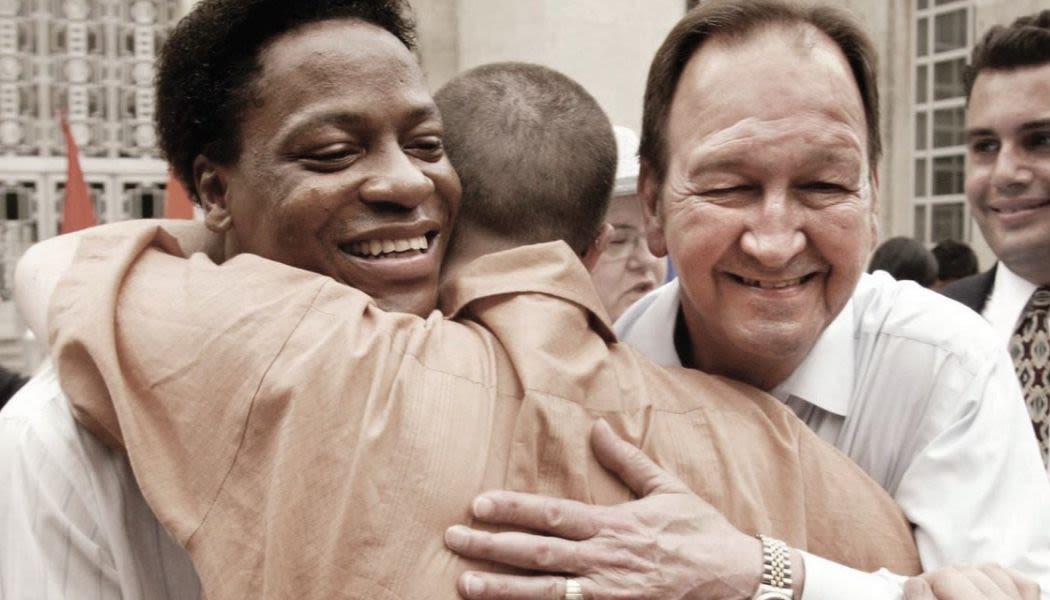
Lawrence v. Texas, 539 U.S. 558, 123 S. Ct. 2472 (2003)
This Supreme Court decision established:
- The Due Process Clause of the Fourteenth Amendment extends to intimate acts of consenting adults committed in private regardless of their sexual orientation.
- Because anti-discrimination laws expressly rejects class-based legislation excluding homosexuals from protection state anti-discrimination laws.
Where did the sodomy laws originate and why it is not applied to consenting adults?
- “[F]or centuries there have been powerful voices to condemn homosexual conduct as immoral. The condemnation has been shaped by religious beliefs, conceptions of right and acceptable behavior, and respect for the traditional family
- "Our obligation is to define the liberty of all, not to mandate our own moral code."
- “It is a promise of the Constitution that there is a realm of personal liberty which the government may not enter."
- “At the outset it should be noted that there is no longstanding history in this country of laws directed at homosexual conduct as a distinct matter… Thus early American sodomy laws were not directed at homosexuals as such but instead sought to prohibit nonprocreative sexual activity more generally.”
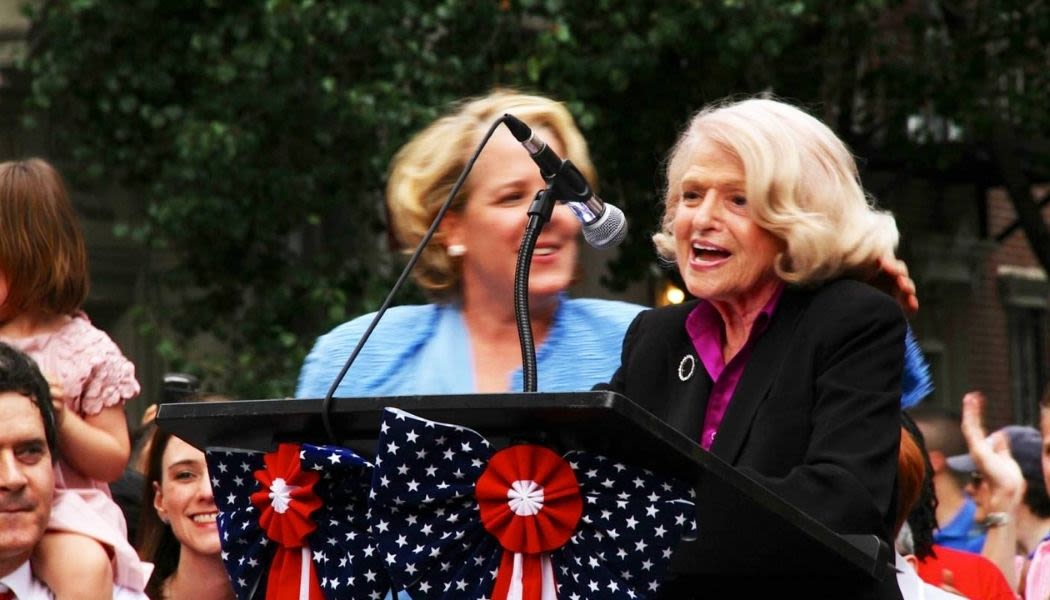
United States v. Windsor,
570 U.S. 744, 133 S. Ct. 2675 (2013)
This Supreme Court decision established:
- DOMA is invalid because excluding same-sex couples from the definition of marriage for the purposes of federal benefits is unconstitutional as it violates the Due Process Clause.
- That all benefits available to married couples under federal law extend to same-sex couples.
Why was DOMA’s definition of Marriage harmful to same-sex couples?
- “DOMA divests married same-sex couples of the duties and responsibilities that are an essential part of married life and that they in most cases would be honored to accept were DOMA not in force.”
- “The avowed purpose and practical effect of the law here in question [is] to impose a disadvantage, a separate status, and so a stigma upon all who enter into same-sex marriages made lawful by the unquestioned authority of the States.”
- “DOMA’s principal effect is to identify a subset of state-sanctioned marriages and make them unequal. The principal purpose is to impose inequality, not for other reasons like governmental efficiency.
- “DOMA contrives to deprive some couples married under the laws of their State, but not other couples, of both rights and responsibilities.”
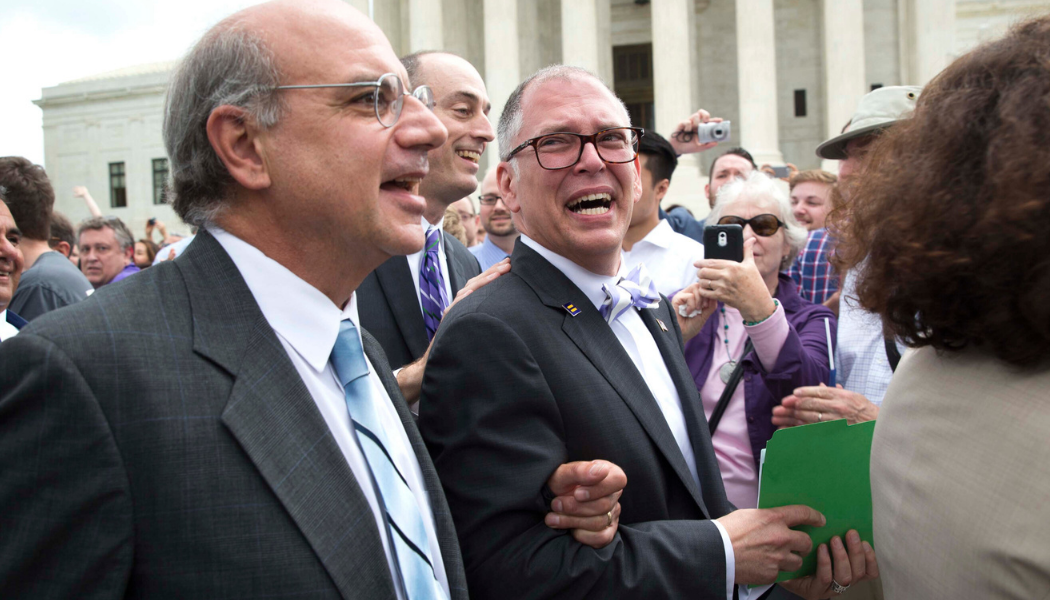
Obergefell v. Hodges,
576 U.S. 644, 135 S. Ct. 2584 (2015)
This Supreme Court decision established:
- Under the Due Process and Equal Protection Clauses of the Fourteenth Amendment, same-sex couples have a fundamental right to marry.
- Because same-sex couples can exercise the fundamental right to marry in all states, it follows that there is no lawful basis for a state to refuse to recognize a lawful same-sex marriage performed in another state on the ground of its same-sex character.
Why is Marriage a Fundamental Right?
- “…the right to personal choice regarding marriage is inherent in the concept of individual autonomy.”
- “[The] Court’s jurisprudence is that the right to marry is fundamental because it supports a two-person union unlike any other in its importance to the committed individuals.”
- “A third basis for protecting the right to marry is that it safeguards children and families and thus draws meaning from related rights of childrearing, procreation, and education.”
- “Fourth and finally, this Court’s cases and the Nation’s traditions make clear that marriage is a keystone of our social order.” (Arguing that) “There is no difference between same- and opposite-sex couples with respect to this principle. Yet by virtue of their exclusion from that institution, same-sex couples are denied the constellation of benefits that the States have linked to marriage. This harm results in more than just material burdens. Same-sex couples are consigned to an instability many opposite-sex couples would deem intolerable in their own lives.”
"Since starting with LexisNexis almost 20 years ago, I noticed right away the strong support this company offered to the LGBTQIA community. Not only does Lexis provide an inclusive and open environment, but they also provide opportunities to learn more and be a part of the community. My colleagues at Lexis are my family. As a family, we all want everyone to be who they are and be happy! I feel blessed to work for a company that truly cares about its people and their well-being."
Lynn Pinnekamp (She/Her),
Practice Area Consultant

"Being an ally at LexisNexis means supporting my LGBTQ+ colleagues by learning and listening to their voices while educating myself about their personal stories, history as well as terminology. In the workplace, it means being cognizant of language and actions that have real consequences for colleagues who we may not know are LGBTQ+. Being an ally is also an action and not just a label. It means that allyship involves supporting LGBTQ+ colleagues when necessary, including when they face discrimination or threats. Learning proper pronouns is also important as it validates our co-workers and shows them that we take them seriously. Most of my 25+ year career in corporate settings has seen many friendships with the LGBTQ+ community and yet I’m always learning and evolving in my approach to allyship and will continue to do so."
Paul Cooper, J.D., M.A. (He/Him),
Practice Area Consultant Blend

"Working for the socially conscious company that is LexisNexis is such a relief after experiencing what it was like to work at others that weren't supportive of their employees. As a disabled lesbian, bringing my authentic self to work makes going to work something that I look forward to and not dread. The support I've received over the last 16 years, whether that is to lend my talents and time to lead Pride and Disability employee resource groups or request and receive voice activation software to assist me in completing my work in a less painful manner, is nothing short of amazing to me. My personal development has been enhanced over the years by being involved in wellness programs and events, and as a facilitator for psychological safety across the business. I'm glad that I came to roost here where I can grow and thrive in my work and in myself."
Dian Sierra (She/Her),
Content Editor (Primary)

"Growing up a heterosexual male several decades ago combined with the region of the country from which I am from, meant that I did not have any exposure whatsoever to the LGBTQ community during what could be considered close to the first half of my life. My first professional position with LexisNexis in the mid-90s helped expose me to a much more diverse group of individuals than those I had grown up with. The group included several individuals from the LGBTQ+ community and I was immediately impressed with the way everyone was treated equally and with absolute respect. This helped me truly understand that there is no difference as people between any of us. Several of my dearest and closest friends throughout the years working at Lexis represent this community and I take great pride in rising above any conscious and unfortunate bias I might have been exposed to early in my life or any potential lingering unconscious bias. What helped set me up for success and likely others is the type of culture that LexisNexis has seamlessly fostered throughout the years. I am very proud to be a part of that culture. Finally, I hope to continue to grow and become even more of an ally in any way that I can to the community. LexisNexis definitely encourages and helps make this possible. "
Michael J. Morton (He/Him),
Regional Consultant Manager, Plains Team

"Here at LexisNexis, I’ve always been proud of our community. However, over the past 24 months, I’ve been especially honored to say that I work for LexisNexis because I truly feel that they have enhanced and improved our culture of Inclusion and Diversity, calling upon us to join together, to educate ourselves, our peers, and our communities in Allyship. So what does it mean, to be an ally at LexisNexis? You have to be open to Learning. Our company has so many resources to take advantage of by learning more, knowing more, and practicing more so that we can respectfully communicate and approach interactions and situations with a learning mindset. Take the classes, and be fully present during the process. These resources not only help our work teams and counterparts, but they are also here to assist at home as well. My daughter has several friends in the LGBTQIA+ community, and I want our home to be a safe place for them. I want them to feel comfortable, and I don’t know if they have that comfort at home, at school, at church, or elsewhere. I want to make sure that I know what to say, what I should refrain from saying, and what I can do to show my support and build a community of support for them as well.
To be an ally also means to Listen. Listen to what is going on around you. I heard someone once say to “listen generously.” Hear what people are saying, and accept feedback. Be willing to hear how you could be a better ally and better support your friends and coworkers. And finally, take action. If you see something, say something. If you hear something, do something. All of the classes taken and education pursued won’t mean much if you don’t change your behavior, or bring attention to those situations lacking in empathy and understanding. So hopefully we can all continue to grow in our abilities to become better allies at LexisNexis."
Emily Haas LaRue (She/Her),
Practice Area Consultant

"As a queer black person in the corporate world, my mental health, safety and voice is very important to me. Throughout my time working with LexisNexis and businesses across RELX, I have experienced nothing but support from my colleagues and leaders to freely express myself and my ideas everyday. You don't experience the level of respect, amount of resources, and speaking opportunities at all companies, so to have that support has been pivotal in my personal and professional development."
Tykori Saunders (He/She/They),
Social Media Community Manager

LGBTQ+ Resources

LexisNexis University Diversity & Elimination of Bias CLEs
The Continuing Legal Education (CLE) Program was initiated to provide attorneys the opportunity to receive credit for attending LexisNexis classes or presentations approved by various state Mandatory Continuing Legal Education (MCLE) Boards. Currently, CLE is mandatory for attorneys in 46 states. LexisNexis is approved to provide programs in all jurisdictions across a variety of delivery methods and types of credit.
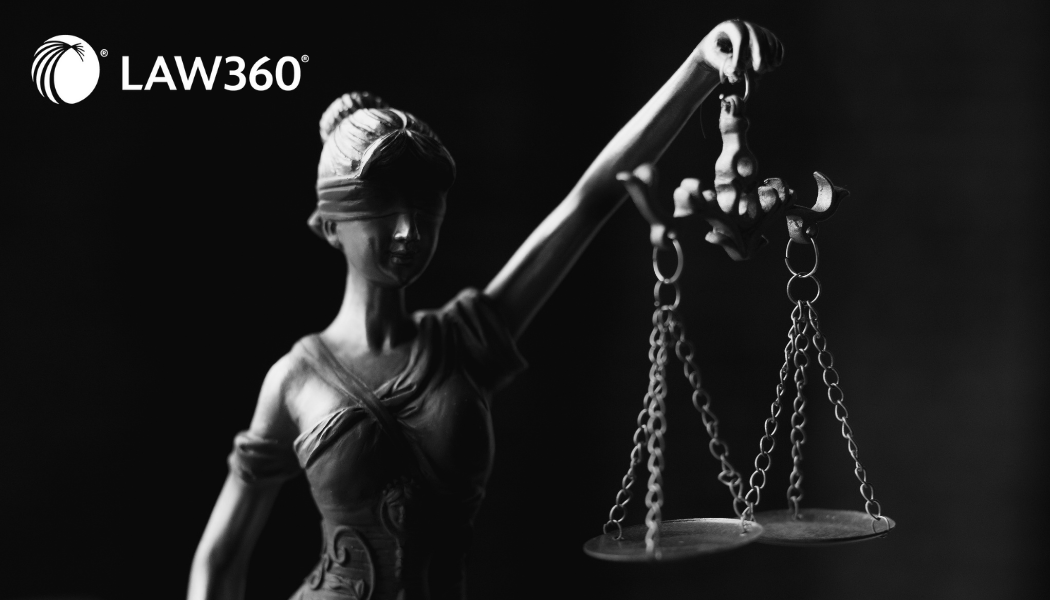
Access to Justice Newsletter
A public newsletter about access to justice in civil and criminal court systems, brought to you by the legal newswire at Law360.

LexisNexis® Rule of Law Impact Tracker
This interactive tool quantifies the relationship between rule of law and social and economic development.


